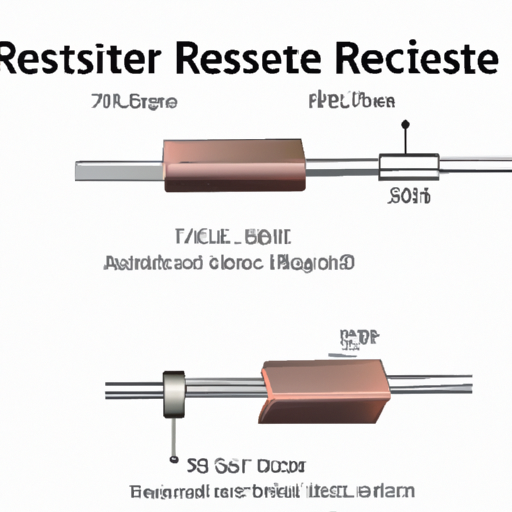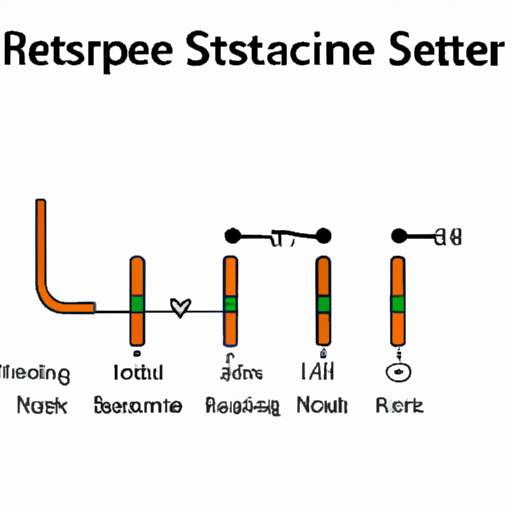What are the market policies for resistor measurement?
Market Policies for Resistor Measurement
I. Introduction
In the world of electronics, the measurement of resistors is a fundamental aspect that ensures the proper functioning of circuits and devices. Resistor measurement refers to the process of determining the resistance value of a resistor, which is crucial for designing and troubleshooting electronic systems. Accurate resistor measurement is vital for maintaining the integrity of electronic components, as even slight deviations can lead to significant performance issues. This blog post will explore the market policies surrounding resistor measurement, highlighting the regulatory frameworks, quality control measures, and future trends that shape this essential aspect of the electronics industry.
II. Understanding Resistor Measurement
A. Types of Resistors
Resistors come in various forms, each serving specific purposes in electronic circuits. The primary types include:
1. **Fixed Resistors**: These resistors have a constant resistance value and are widely used in circuits for current limiting and voltage division.
2. **Variable Resistors**: Also known as potentiometers, these allow for adjustable resistance, making them ideal for applications like volume controls in audio equipment.
3. **Specialty Resistors**: This category includes thermistors, photoresistors, and others designed for specific applications, such as temperature sensing or light detection.
B. Measurement Techniques
Accurate measurement of resistors can be achieved through several techniques:
1. **Ohmmeters**: These devices measure resistance directly and are essential for quick checks in circuit testing.
2. **Multimeters**: Versatile tools that can measure voltage, current, and resistance, making them indispensable for electronics professionals.
3. **LCR Meters**: These specialized instruments measure inductance (L), capacitance (C), and resistance (R), providing a comprehensive analysis of passive components.
C. Standards and Units of Measurement
The standard unit of resistance is the ohm (Ω). Understanding tolerance and accuracy is crucial, as these factors determine how closely a resistor's actual value matches its specified value. Additionally, the temperature coefficient indicates how resistance changes with temperature, which is vital for applications in varying environmental conditions.
III. Regulatory Framework
A. International Standards Organizations
Several international bodies establish standards for resistor measurement, ensuring consistency and reliability across the industry:
1. **International Electrotechnical Commission (IEC)**: This organization develops international standards for electrical and electronic technologies, including resistor measurement.
2. **Institute of Electrical and Electronics Engineers (IEEE)**: IEEE standards cover a wide range of electrical engineering topics, including measurement techniques and equipment.
B. National Standards Bodies
In addition to international organizations, national bodies play a crucial role in standardization:
1. **American National Standards Institute (ANSI)**: ANSI oversees the development of voluntary consensus standards for products, services, and systems in the U.S.
2. **National Institute of Standards and Technology (NIST)**: NIST provides measurement standards and guidelines, ensuring accuracy and reliability in resistor measurement.
C. Compliance and Certification
Compliance with established standards is essential for manufacturers and service providers. Certification processes validate that products meet specific quality and safety standards, fostering consumer trust and ensuring market integrity.
IV. Market Policies Affecting Resistor Measurement
A. Quality Control Policies
Quality control is paramount in resistor manufacturing. Policies governing manufacturing standards and testing procedures ensure that resistors meet specified performance criteria. Regular calibration of measurement instruments is also critical to maintain accuracy.
B. Environmental Policies
Environmental regulations, such as the Restriction of Hazardous Substances (RoHS) directive, mandate the reduction of hazardous materials in electronic components. Compliance with these policies is essential for manufacturers to access global markets.
C. Trade Policies
Trade policies, including import/export regulations and tariffs, significantly impact the availability and pricing of resistors. Manufacturers must navigate these policies to remain competitive in the global market.
D. Intellectual Property Policies
Intellectual property (IP) policies protect innovations in measurement technologies. Patents and licensing agreements play a crucial role in fostering innovation while ensuring that companies can capitalize on their research and development efforts.
V. Impact of Market Policies on Industry Practices
A. Influence on Manufacturers
Market policies directly influence manufacturers' design and production processes. Compliance with quality standards may require investments in advanced manufacturing technologies, impacting production costs and timelines.
B. Influence on Consumers
Consumers benefit from market policies that ensure product quality and safety. However, compliance costs may lead to higher prices for end-users. Availability of products can also be affected by trade policies, influencing consumer choices.
C. Influence on Research and Development
Market policies encourage innovation in measurement technologies. Manufacturers often collaborate with regulatory bodies to develop new standards and improve measurement accuracy, driving advancements in the field.
VI. Challenges and Opportunities
A. Challenges in Compliance
Keeping up with evolving regulations poses a significant challenge for manufacturers. The costs associated with compliance, including testing and certification, can strain resources, particularly for smaller companies.
B. Opportunities for Growth
Emerging markets present opportunities for growth in resistor measurement. As technology advances, manufacturers can explore new applications and markets, leveraging innovations to enhance measurement accuracy and efficiency.
VII. Future Trends in Resistor Measurement Policies
A. Digital Transformation
The digital transformation of measurement devices is revolutionizing the industry. Smart measurement devices equipped with IoT capabilities enable real-time monitoring and data analysis, enhancing accuracy and efficiency.
B. Sustainability Initiatives
Sustainability is becoming a focal point in resistor measurement policies. The use of eco-friendly materials and energy-efficient measurement techniques aligns with global efforts to reduce environmental impact.
C. Globalization of Standards
The globalization of measurement standards is essential for facilitating cross-border trade. Harmonization of standards ensures that products meet consistent quality criteria, simplifying international transactions.
VIII. Conclusion
In conclusion, market policies for resistor measurement play a crucial role in shaping the electronics industry. From regulatory frameworks to quality control measures, these policies ensure that resistors meet the necessary standards for performance and safety. As the industry evolves, manufacturers must adapt to changing regulations and embrace opportunities for innovation. The future of resistor measurement lies in digital transformation, sustainability initiatives, and the globalization of standards, paving the way for a more efficient and reliable electronics market.
IX. References
1. International Electrotechnical Commission (IEC). (n.d.). Retrieved from [IEC Website](https://www.iec.ch)
2. Institute of Electrical and Electronics Engineers (IEEE). (n.d.). Retrieved from [IEEE Website](https://www.ieee.org)
3. American National Standards Institute (ANSI). (n.d.). Retrieved from [ANSI Website](https://www.ansi.org)
4. National Institute of Standards and Technology (NIST). (n.d.). Retrieved from [NIST Website](https://www.nist.gov)
5. RoHS Directive. (n.d.). Retrieved from [European Commission Website](https://ec.europa.eu/environment/waste/rohs_eee/index_en.htm)
6. WEEE Directive. (n.d.). Retrieved from [European Commission Website](https://ec.europa.eu/environment/waste/weee/index_en.htm)
This blog post provides a comprehensive overview of the market policies related to resistor measurement, emphasizing the importance of compliance, quality control, and future trends in the industry.





